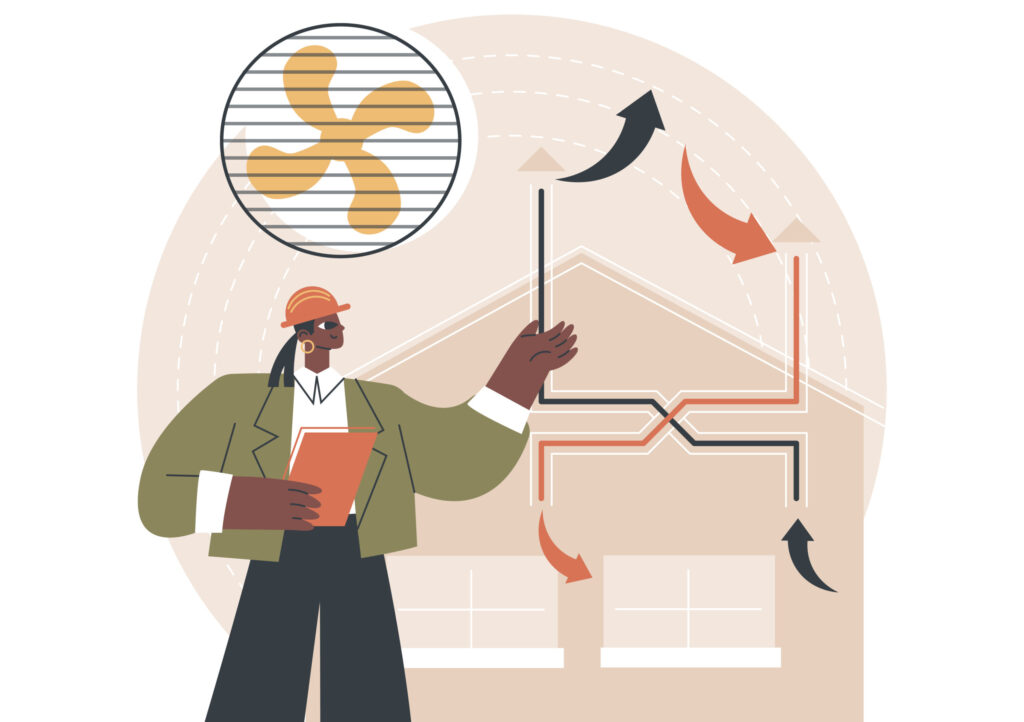As if there weren’t already enough things to worry about, we’re about to let you in on something else: The air in your home might be harming you.
This is not intended to monger fear, but there’s science to back it up: Earlier this year, the Texas A&M School of Public Health conducted a study that found that in a test group, hazardous air particles in the participants’ homes were significantly higher than in their office buildings. With more and more jobs going remote, it’s definitely something to pay attention to.
Dr. James Kaplan, a board-certified pulmonary disease and critical care physician at Overland Park Regional Medical Center, says that over the course of one day, our lungs filter over twelve thousand liters of air—which isn’t always fresh.
“That air contains all sorts of particles,” Kaplan says. Over-exposing yourself to these particles increases the risk of asthma, chronic bronchitis, chronic obstructive pulmonary disease or worse. “It can also lead to things people don’t think of, like cardiovascular disease or stroke that can happen from exposure to carbon monoxide. Also, respiratory cancer can happen from exposure to radon.”
The primary concerns are gas combustion appliances such as stoves, fireplaces, ovens and furnaces. These sources release carbon monoxide and other pollutants into the air, and if your home isn’t adequately ventilated, trouble can ensue.
“If [these appliances] are inadequately ventilated, your body has to process the pollutants, which can lower your oxygen levels available for all of the cells that need it, including your heart, brain and so on,” Kaplan says.
Other sources of air contamination can include tobacco, deteriorating materials (such as asbestos-ridden popcorn ceilings and floor tiles), toxic cleaning and self-care products, excess moisture, dirty HVAC systems and even the dirt living in your carpets and furniture.
According to Kaplan, poor air quality-related symptoms that would warrant a call to the doctor include chest pain or chest tightness, dizziness or fainting, shortness of breath, wheezing and recurrent episodes of bronchitis or respiratory infections.
“People need to pay attention to the air quality in their homes,” Kaplan says. “People are aware of outdoor irritants and allergens and substances that can impact their breathing, but they tend to overlook what’s going on inside their homes.”
How to Improve the Air Quality in Your Home
There are many ways to help the air quality in your home, and it could be as simple as cracking a window. When it comes to fresh air, more is more.
Call a Pro
When in doubt, call a qualified HVAC engineer to check out your home. They’ll do a performance evaluation to ensure that all air ducts, piping and furnaces are clean and working efficiently.
Replace Filters
The general consensus is to change air filters every ninety days, but more often if you have pets or if anyone living in the home has allergies.
Use Air Purifiers
Air purifiers run the gamut of little tabletop gadgets that look like something you’d shout “Alexa” at or massive whole-house units. Do research on what works best for your home and lifestyle.
Let Air In
Open windows and doors when weather permits—especially if you are doing housework that emits fumes like painting, sanding and welding.
Run Fans
When it’s above seventy degrees, run your attic fans to help prevent any moisture buildup. Also, it might be beneficial to run a window A/C unit with its vents open to circulate in outside air.
Clean Carpets and Rugs
Dust and dirt grip onto carpet and rug fibers. Along with a weekly vacuum session (more often if you have pets), most professionals recommend a professional carpet deep clean once a year.





